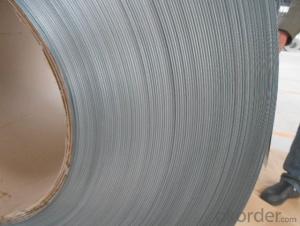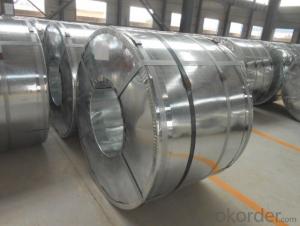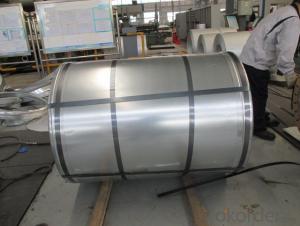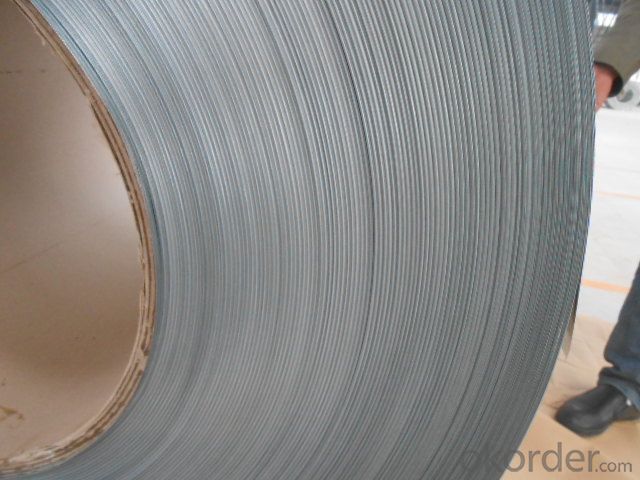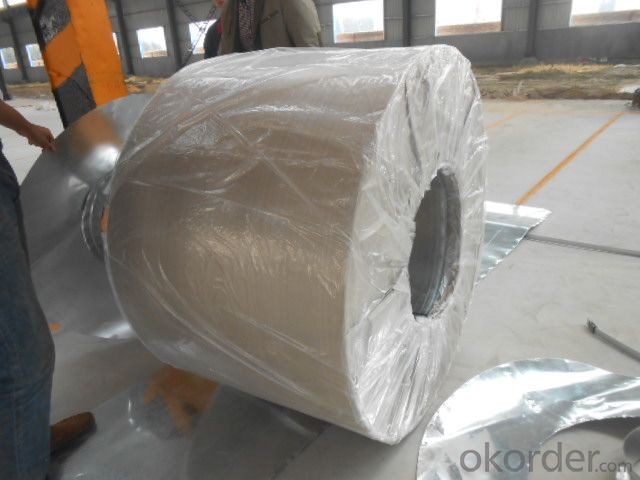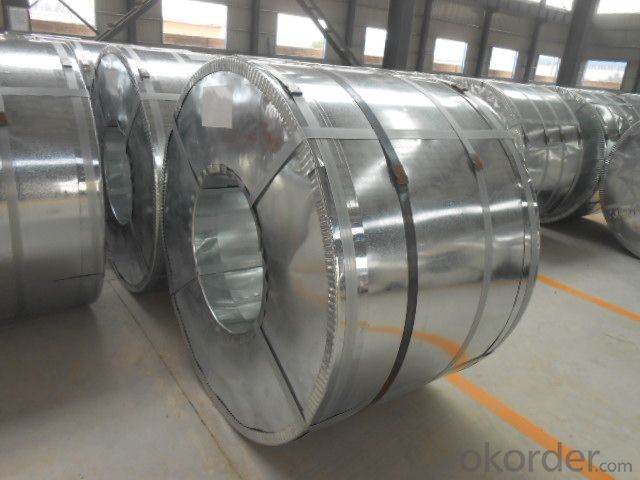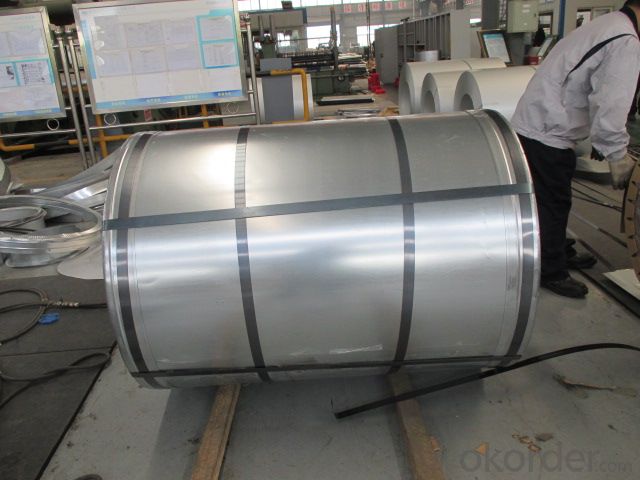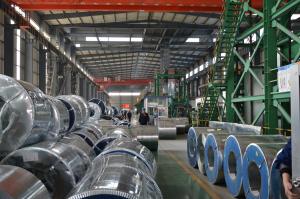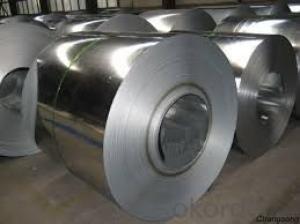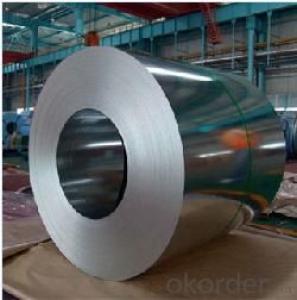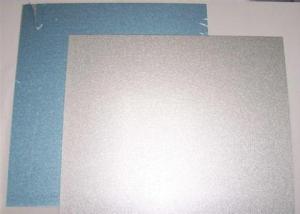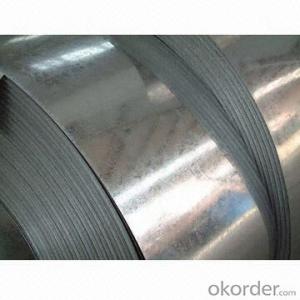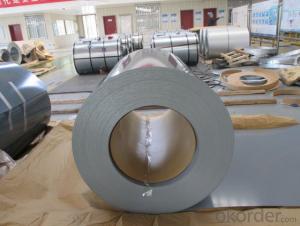galvanized steel coil Z06
- Loading Port:
- China Main Port
- Payment Terms:
- TT OR LC
- Min Order Qty:
- -
- Supply Capability:
- -
OKorder Service Pledge
OKorder Financial Service
You Might Also Like
Galvanized steel coil
Packaging & Delivery
Packaging Detail: seaworthy export package
Delivery Detail: on request
Specifications
1. more than 10 years’ experience on this field
2. advanced equipments
3. competitive price
4. soonest delivery
Product Description :
Prime Galvanized steel coil
Packaging & Delivery
Packaging Detail: seaworthy export package
Delivery Detail: on request
Specifications
1. more than 10 years’ experience on this field
2. advanced equipments
3. competitive price
4. soonest delivery
Product Description :
Commodity
Hot dip galvanized steel coil
Technical Standard:JIS 3302 / ASTM A653 / EN10143/ GB/T 2518
Grade:DX51D/ S250,280,320GD,SGCC,SGHC,SGH340,SGH400,SGH440,G450,G550
Types:Commercial / Drawing / Deep Drawing / Structural quality
Width: 900mm/1000mm/1219mm/1200mm/1220mm/1250mm
Thickness: 0.2mm~4.0mm
Type of coating: galvanized
Zinc coating: Z40-275g/m2,Z40-Z450g/m2
Surface treatment:zero spangle / regular spangle/ big spangle
ID coil: 508mm or 610mm
Coil weight: 3-10/MT per coil
Package:Properly packed for ocean freight exportation in 20''container
Application::home appliances, constructions, building, machineries
Our Advantages :
1. Expertise:
More than 10 years of manufacture: we know how to properly handle every step of production.
2. Competitive price:
We can offer competitive prices to our customers.
3. Accuracy:
We have excellent technicians and leaders, which can ensure our products are exactly what you want.
4. Materials:
All galvanized steel coils are made of high-quality raw materials.
5. Certificate:
Our products are certified by ISO9001.
6. Productivity:
We have large-scales of production lines,, which can guarantee all your orders will be finished in earliest time.
Hr CGL Technical Process:
Coil loading-> uncoiling-> cutting-> welding-> entry accumulator-> Heating and deoxidization-> galvanizing-> air cooling->water quenching-> air dryer-> tension leveler-> Passivation->air dryer->exit accumulator-> oiling-> cutting-> recoiling->coil unloading-> packing
The furnace heating style: improved Sendzimir heating technology
Hourly output: max.76.3t/h
Process after coating: tension leveling, Passivation or oiling
Our Service
Our quality
Test Equipments of Prepainted Galvanized Steel Coil : Salt-spray tester; Atomic absorption spectrophotometer; Rockwell typer hardness tester; Tensile test machine; Metrohm titration; Laboratory Bend test machine.
Our packing
Properly packed for ocean freight exportation in 20''container, galvanized metal fluted rings on inner and outer edges, galvanized metal & waterproof paper wall protection disk, galvanized metal & waterproof paper around circumference.
R&D department
R&D department concentrates on researching and developing reliable products with best quality. The quality department test and control every process of production to guarantee the best quality of products
- Q: were iron age weapons made of steel?
- No, the iron age was just iron. It was smelted down in open fires where temperatures can vary. There was a problem of not always being able to cook out all the impurities from the ore, which led to inconsistent strengths in finished products. People first discovered the properties and advantages of steel when charcoal (carbon) was added to smelted iron. I don't know when the first steel was made. But it must have been a more expensive process because it didn't appear in household products until around 1800. But I'm not sure on that.
- Q: The hard industrial steels. If there's a bunch, what's a rough average? Also, what is is measured in?
- The general purpose default steel for hard tooling applications is A2 It's cheap, readily available and comes in many different shapes and sizes. It's easy to machine soft. It's easy to harden, you can do it yourself. It is very dimensionally stable during hardening. All the steels mentioned above are specialty steels - expensive to buy, hard to work with, expensive to heat treat and dimensionally unstable during heat treat.
- Q: How are steel coils used in the manufacturing of aerospace components?
- Steel coils are used in the manufacturing of aerospace components primarily for their strength, durability, and ability to withstand high temperatures. These coils are typically formed into various shapes and sizes to create structural parts like fuselage frames, landing gear components, and engine mounts. The steel coils provide the necessary strength and rigidity to ensure the structural integrity of these aircraft components, making them essential in the aerospace industry.
- Q: I installed it, added it in F3 launcher and then after one minute of walking in wasteland I get a signal that Broken steel was added and that my level of caps was raised by 30. However after this message no quest is added. I played all 4 exp. packs and I had no problem at all, each time a new quest was added. So whats up with this Broken steel. Btw, I completed the entire game F3.
- Yeah you awaken after the ending cutscene in case you have it put in and then yet another quest line is given to you and you will circulate on your merry way doing in spite of you experience like.
- Q: How are steel coils cut and shaped for specific requirements?
- Steel coils are cut and shaped for specific requirements through a process called slitting and forming. Slitting involves unwinding the coil and passing it through a set of rotary knives that cut it into narrower strips. These strips can be further cut or shaped using tools such as shears, blades, or presses to meet the desired dimensions and specifications. The shaping process may involve bending, rolling, stamping, or welding the strips to achieve the required form. Overall, precision machinery and skilled operators are key in ensuring steel coils are cut and shaped accurately for specific needs.
- Q: How are steel coils used in the manufacturing of electrical wiring?
- Steel coils are not typically used directly in the manufacturing of electrical wiring. However, steel coils can be used in the production of wire drawing machines, which are used to stretch and shape the copper or aluminum wire used in electrical wiring.
- Q: How are steel coils used in the production of electrical wiring?
- Steel coils are used in the production of electrical wiring as a core material for the conductors. The steel coils are typically shaped into a cylindrical form and coated with an insulating material. This helps in providing structural support to the wiring and also enhances its conductivity and durability.
- Q: LIke a steel building conversion into a residental building??? Thanks.
- Right here. Steel Homes, Steel House, Steel Buildings, Steel Home Plans, ... Steel Homes, Steel House, Steel Buildings, Steel Home Plans, Steel Houses, ... Steel Homes and Buildings · Steel Office Buildings and Construction sites ... www.karmod.eu/steel-structures - 18k - Similar pages www.karmod.eu/steel-structures steel buildings metal buildings modular homes steel building ... ... log homes photographs, log homes construction, sales agents, log homes financing, ... Easy online pricing
- Q: What are the safety regulations for steel coil production facilities?
- The safety regulations for steel coil production facilities typically include measures such as proper training and certification for employees, regular equipment inspections and maintenance, use of personal protective equipment, implementation of fire prevention and evacuation plans, adherence to hazardous material handling protocols, and compliance with occupational health and safety standards. These regulations aim to minimize the risk of accidents, injuries, and environmental hazards within the facility.
- Q: How are steel coils cut to size?
- Steel coils are cut to size using a variety of methods such as shearing, slitting, or laser cutting. These processes involve using specialized machinery to ensure precise and accurate cuts according to the required dimensions.
Send your message to us
galvanized steel coil Z06
- Loading Port:
- China Main Port
- Payment Terms:
- TT OR LC
- Min Order Qty:
- -
- Supply Capability:
- -
OKorder Service Pledge
OKorder Financial Service
Similar products
Hot products
Hot Searches
Related keywords
